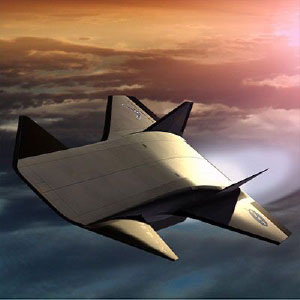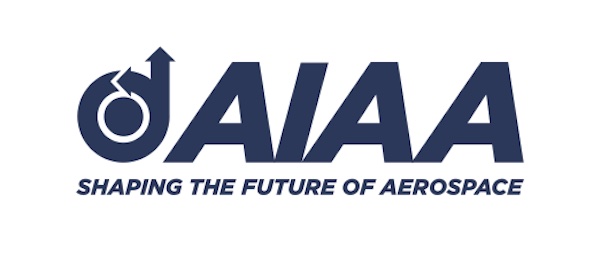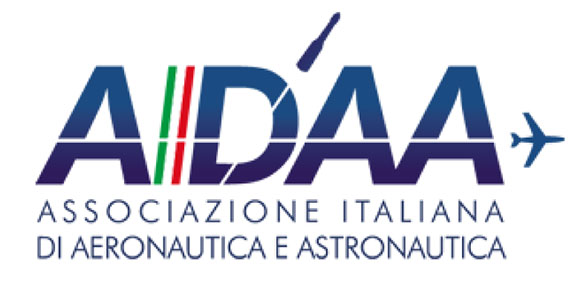27th AIAA International Space Planes and Hypersonic Systems and Technologies Conference 7 July 2026 – 10 July 2026 University of Naples Federico II, Naples, Italy

The 27th AIAA International Space Planes and Hypersonic Systems and Technologies Conference, jointly organized with the Italian Association of Aeronautics and Astronautics (A.I.D.A.A), will provide a forum for discussion and exchange of information for attendees from across the globe about leading-edge research and development activities associated with space planes and hypersonic atmospheric flight vehicles and the technologies underpinning these capabilities. Presentations will be provided on national programs from Europe, North America, South America, Australia, and Asia and multiple opportunities for international collaboration will be discussed. Technical paper topics include planned and ongoing space plane and hypersonic vehicle programs, advanced launch vehicle and hypersonic atmospheric flight vehicle concepts, commercial space tourism concepts, ground and flight testing techniques, results, and lessons learned, reentry vehicle systems and technologies, aerodynamics and aerothermodynamics of space planes and hypersonic vehicles, guidance and control systems, rocket, ramjet, scramjet, and other advanced propulsion systems, including component technologies (e.g., inlets, combustion systems, fuel injection concepts, ignition and flameholding concepts, nozzles), high-temperature materials, hot structures and thermal protection systems, health monitoring and management technologies, and more. Special panel sessions will be organized around relevant topics of strong global interest.
Technical Committee Representative
Peter Montgomery
Amentum
AFRL Rocket Lab
Edwards Air Force Base, California
[email protected]
Technical Topics
- Mission planning and real-time adaptation and optimization
- Planned and ongoing space plane and hypersonic vehicle programs and approaches
- Advanced launch vehicles and hypersonic atmospheric flight vehicles
- Reentry vehicle systems and technologies
- Overall vehicle system performance and optimization
- Conceptual designs
- Mission planning and real-time adaptation and optimization
- Benefits and practicality of hypersonic civil transport
- Economic and market analysis
- Environmental effects including chemical pollution, noise, and sonic boom
- Regulatory, certification, operational, health and safety issues
- Advanced thermal management concepts
- System and component performance, dynamics and active or passive control
- Trajectory adjustment and optimization
- System and component development and manufacturing
- Thermal protection systems, coatings and ablative systems
- Thermal protection of non-operating propulsion systems (cocooning)
- Advanced thermal management concepts
- System and component performance, dynamics and active or passive control
- Trajectory adjustment and optimization
- System and component development and manufacturing
- Thermal protection systems, coatings and ablative systems
- Thermal protection of non-operating propulsion systems (cocooning)
- Compression components including forebodies, intakes, and compressors
- Air cooling/collection devices
- Injectors, combustors, isolators, nozzles and afterbodies
- Propellant supply systems
- Performance enhancement concepts, e.g. plasma assisted techniques and advanced nozzles
- Component performance, dynamics and control
- Component development and manufacturing
- Conventional and alternative fuels, additives, catalysis
- Flight mechanics, guidance and control systems for vehicles, subsystems, and payloads
- Routing, navigation, trajectory optimization, and operations research
- Health monitoring sensors, actuators, controllers and algorithms
- ystem and component performance, dynamics and control
- Vehicle control and maneuverability
- Flight stability and dynamics
- Aerodynamic force and moment databases
- Drag predictions
- Basic materials science and properties
- Metallic and composite materials for hot and cooled structures
- Thermal protection systems
- Active/functional materials
- Quality control, damage tolerance, structural health monitoring, and survivability
- Materials manufacturing and processing
- Test and evaluation
- Ground test facilities, flight test operations, and comparison to simulations
- Diagnostics and data systems
- Scale limitations and facility effects
- Test methodology, validation and verification
- Advanced computational techniques, FVM, FEM, Cartesian, Overset
- Thermo-chemically reacting flows
- Rarefied flows, DSMC methods
- All-speed regimes codes
- Turbulence modeling, RANS, DES, LES, etc.
- Wall catalysis and ablation
- Magneto-hydrodynamic effects
- Radiation cooling effects
- Fluid/structure interaction
- Weather and particulate effects
- CFD mesh control methods for structured and unstructured grids
- Hypersonic vehicles design optimization
- Code validation and verification
- Facility modeling and simulation
- Artificial intelligence and machine learning applications in hypersonics
- Interdisciplinary advancements focused on addressing the unique challenges associated with hypersonic flight
- Weather effects
- Historical aspects, analyses, assessments
- Historical reviews
- Lessons learned from previous hypersonic efforts
- New analysis of old historical data
The Hypersonic Technologies and Aerospace Planes (HyTASP) Technical Committee invites students to participate in the HyTASP Student Paper Competition at the 27th AIAA International Space Planes and Hypersonic Systems and Technologies Conference. Eligible papers will be judged by members of the HyTASP Honors & Awards Subcommittee for the “Don Wilson Best Student Paper” award.
Call for Papers
Abstract Submission Open: 7 October 2025
Abstract Deadline: 4 December 2025, 2000 hrs ET USA
Author Notifications: 23 February 2026
Manuscript Deadline: 2 June 2026, 2000 hrs ET USA
Organizing Committee
Chair
Peter Montgomery, Amentum, AFRL Rocket Lab
Local Chair
Erasmo Carrera, AIDAA
Event Managers
Christopher Horton, AIAA
Marco Petrolo, AIDAA
AIDAA Technical Committee
Raffaele Savino, Chair, Università di Napoli Federico II
Marta Albano, ASI
Gianpiero Colonna, CNR
Domenic D’Ambrosio, Politecnico di Torino
Sergio De Rosa, Università di Napoli Federico II
Nunzia Favaloro, CIRA
Giulio Gori, Politecnico di Milano
Vincenzo Gulizzi, Università di Palermo
Antonella Ingenito, Università di Roma La Sapienza
Stefano Mungiguerra, Università di Napoli Federico II
Renato Paciorri, Università di Roma La Sapienza
Alfonso Pagani, Politecnico di Torino
Giuseppe Pascazio, Politecnico di Bari
Fabrizio Ponti, Università di Bologna
Enrico Zappino, Politecnico di Torino4


